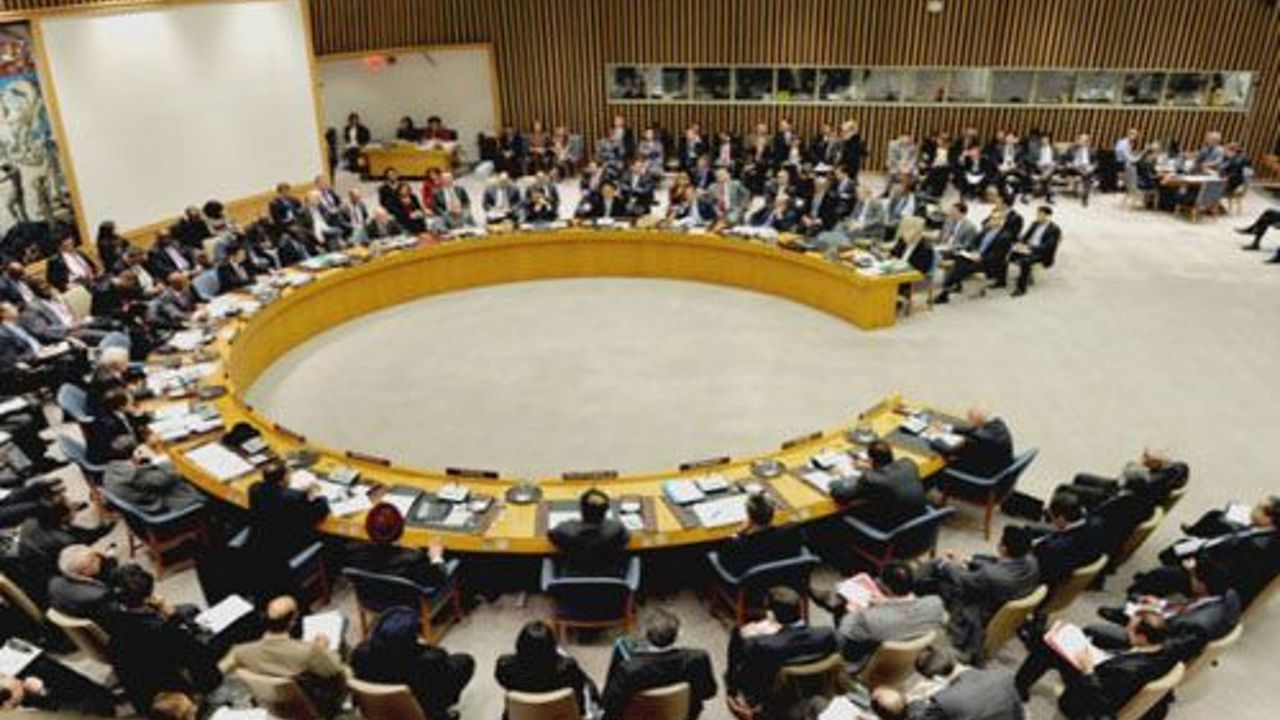UNSC stipulates destroying Syria's chemicals
The UN Security Council has unanimously adopted a resolution outlining the details of destroying Syrias chemical arsenal and stipulating the key steps beginning with the establishment of a transitional governing body

The UN Security Council has unanimously adopted a resolution outlining the details of taking under international control and ultimately destroying Syria’s chemical arsenal and stipulating the key steps beginning with the establishment of a transitional governing body. The adopted resolution calls for consequences if inspectors decide that Syria has failed to fulfill its obligations. The nature of the reaction, however, will depend on another resolution which would have to be passed in the event of non-compliance. The resolution also condemns in the strongest terms any use of chemical weapons in the Syrian Arab Republic, in particular the attack on 21 August 2013, in violation of international law. It endorses fully the Geneva Communiqué of 30 June 2012, which sets out a number of key steps beginning with the establishment of a transitional governing body exercising full executive powers, which could include members of the present Government and the opposition and other groups and shall be formed on the basis of mutual consent; "Today's historic resolution is the first hopeful news on Syria in a long time," UN Secretary-General Ban Ki-moon told the council immediately after the vote. The Syrian sides must engage constructively in the upcoming Geneva 2 conference, which would be a significant step towards the “creation of a democratic state that guarantees the human rights of all in Syria,” Moon said in his address to the Council.
“The regional actors have a responsibility to challenge those who will actively undermine the process and those who do not fully respect Syria’s sovereignty, unity and territorial integrity,” he added.
The target date for a new peace conference in Geneva was set for mid-November. However, the Syrian opposition should be represented at the Geneva peace talks in a single delegation, the Secretary-General said.
The US Secretary of State, John Kerry, stated in his speech that only the “Assad regime carries the burden of meeting the terms of this agreement," telling the international community that inspections will begin by November.
“ Syria cannot select or reject the inspectors.Syria must give those inspectors unfettered access to any and all sites and any and all people," he said, adding that the weapons should be destroyed by mid-2014.
He also warned that "should the regime fail to act, there will be consequences.”
”This resolution makes clear that those responsible for this heinous act must be held accountable,” said Kerry.
The adopted resolution calls for consequences if inspectors decide that Syria has failed to fulfill its obligations. The nature of the reaction, however, will depend on another resolution which would have to be passed in the event of non-compliance.
‘The resolution does not fall under Chapter 7 of the UN Charter and does not allow any automatic enforcement of coercive measures,” Russian Foreign Minister Sergey Lavrov said after the Security Council vote.
The UN Security Council resolution on chemical weapons in Syria will have to be observed not only by the Syrian authorities, but also by the opposition, Lavrov stressed.
"The responsibility for the implementation of this resolution does not only lie on the government of Syria," he said.
The chemical weapons resolution on Syria establishes a framework for overcoming the ongoing political crisis. According to Lavrov, the Syrian opposition is also obliged to work with international experts as required by the Security Council resolution.







